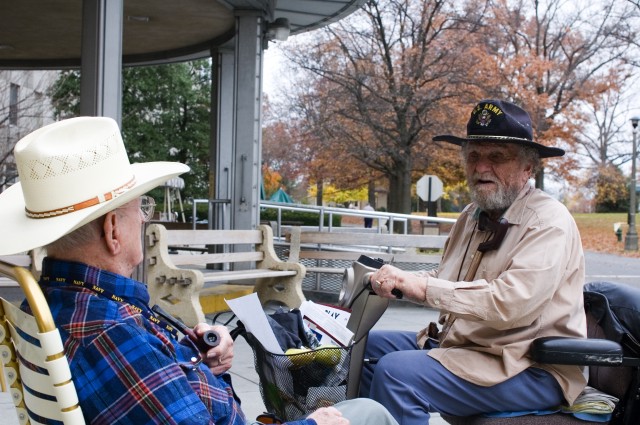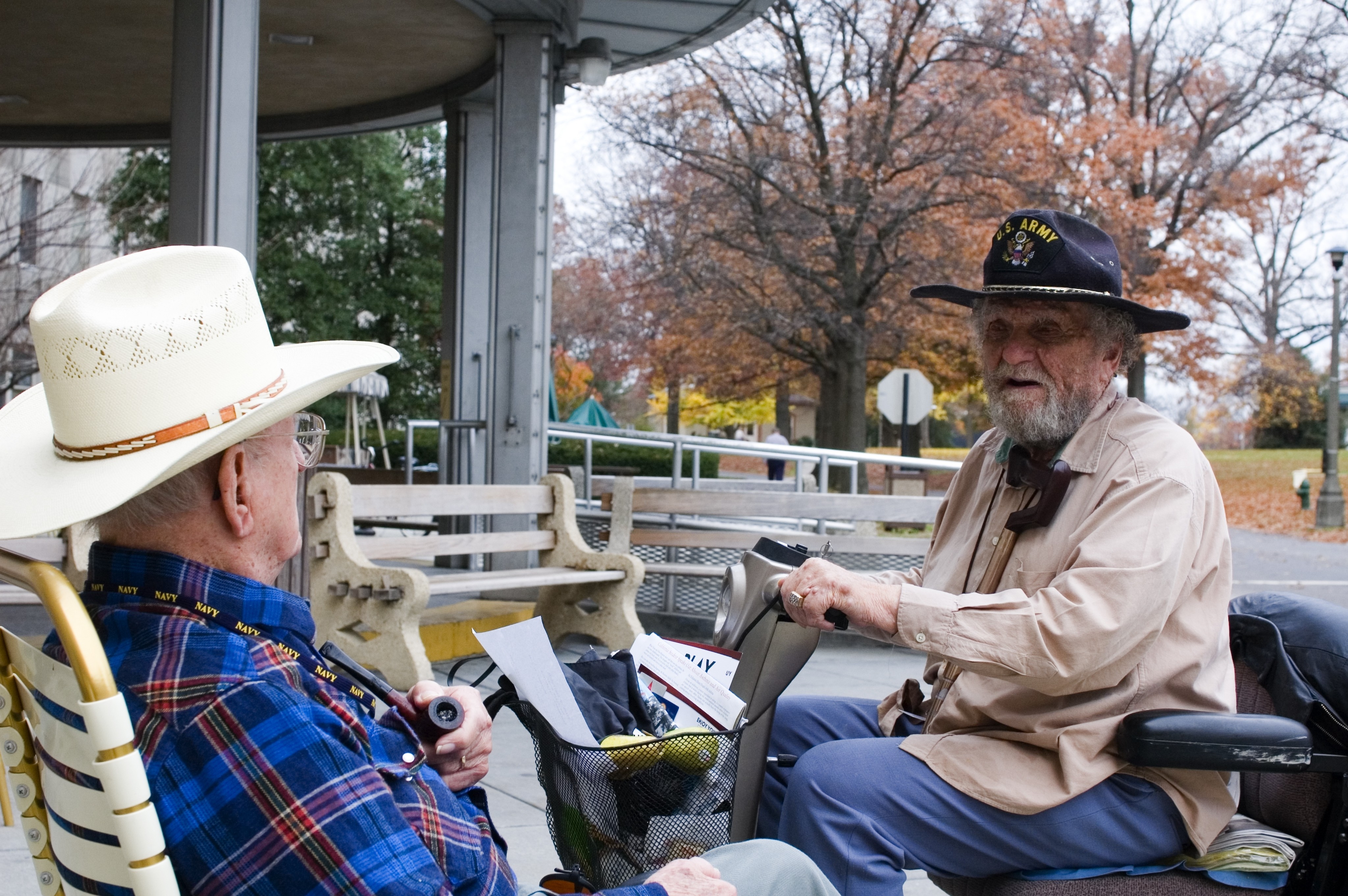WASHINGTON (Army News Service, March 23, 2007) - There is a place where servicemembers from all of the nation's armed forces - many of whom have survived some of America's bloodiest battles - will always be welcome. These veterans are as young as 43 and as old as 101.
The Armed Forces Retirement Home in Washington, D.C., is a place retired enlisted veterans of the armed forces can call home.
"The primary objective of the AFRH is to keep residents as independent and as active as possible for as long as possible," said Sheila Abarr, AFRH public affairs officer. "Old Soldiers don't come here to fade away, as Gen. Douglas McArthur once stated, they come here to live and to live fuller lives."
Ninety-seven percent of the AFRH's residents served in a war, ranging from World War II to Operation Desert Storm. Residents also include former U.S. prisoners of war, and some veterans still suffering the effects of exposure to Agent Orange.
Most AFRH residents have no family or support, and the typical resident is a 78-year old, single Army veteran. More than half are over the age of 80. About one out of every five residents is disabled, Abarr said.
"The AFRH is a safe and secure haven for those who have served," said W.R. Kitson, chairman of the home's Residents Advisory Council. "AFRH offers residents an affordable place to lead independent lives. Many appreciate the fact that all their needs can be met, but they're not waited on."
Ninty-three-year-old retired Army Air Forces Sgt. Frederick Douglas echoes the sentiments of many of the residents.
"I don't want to be a burden to my relatives or to anyone. I don't want or like to be waited on," Douglas said. "The AFRH meets all my needs."
<b>A Comprehensive Complex</b>
Often described as a "city within a city," the 20-acre AFRH has its own bank, post office, three chapels, a new fitness center and gymnasium, a theater, a library, an auto shop, a pub, beauty and barber shops, a small post exchange and vendor shops.
AFRH offers residents various recreational activities, including golf, bowling and swimming. Residents enjoy social clubs and such pastimes as dancing, gardening, sculpting, painting, woodworking, biking, bingo and card tournaments.
Other activities include morale, welfare and recreation-sponsored tours and outings. A private bus takes residents to malls, museums, racetracks and other Washington, D.C., area attractions.
Long-term medical care is available 24/7 from on-site medical personnel. Resident health-care services range from community nursing and assisted living in dormitories to primary, intermediate and skilled care at the King Health Center, a long-term-care accredited facility. There are licensed specialists in dentistry, optometry and podiatry, as well as internal medicine specialists. Residents must be in relatively good health when they enter the home. However, as they age their medical and quality-of-life needs are met.
AFRH residents hail from every state, and from Puerto Rico and the Philippines. Among the 1,200 residents are 115 women. Before 1948, women were not permitted to serve full-time in the armed forces, and women who served during World War II had to leave the service when the war ended. They were first admitted to AFRH in 1954.
Other residents include 15 married couples. While they can live together, each must be individually qualified for admission. There are married quarters for those who desire to live in the same room.
A shuttle bus provides transportation for residents six times a day to surrounding hospitals, including Walter Reed Army Medical Center, the Washington Veterans Administration Medical Center and Bethesda Naval Medical Center.
<b>A Unique Institution</b>
AFRH is an independent federal agency under the jurisdiction of the secretary of defense and is managed by the federal government. It is funded by a permanent trust fund; no taxpayer dollars are used for its operation. AFRH funding comes from enlisted and warrant officer monthly contributions of 50 cents; fines and forfeitures from military disciplinary actions; fees paid by residents living at the AFRH; and interest from the trust fund.
AFRH membership is open to veterans who spent at least 50 percent of their time as enlisted personnel, warrant officers or limited-duty officers, and who fall into at least one of the following categories at the time they are considered for AFRH residency:
Aca,!Ac Veterans who are at least 60 years old and were discharged or released from service under honorable conditions after 20 or more years of active service;
Aca,!Ac Veterans who are unable to earn a living because of a service-connected disability, who have served in a war or were eligible for hostile life special pay;
Aca,!Ac Warrant officers or officers who served more than 50 percent of their time in the enlisted ranks;
Aca,!Ac Female veterans who served in the armed forces before June 12, 1948, or have compelling circumstances; and
Aca,!Ac Married couples who qualify individually.
The Armed Forces Retirement Home currently has a waiting list of several hundred veterans.


Social Sharing